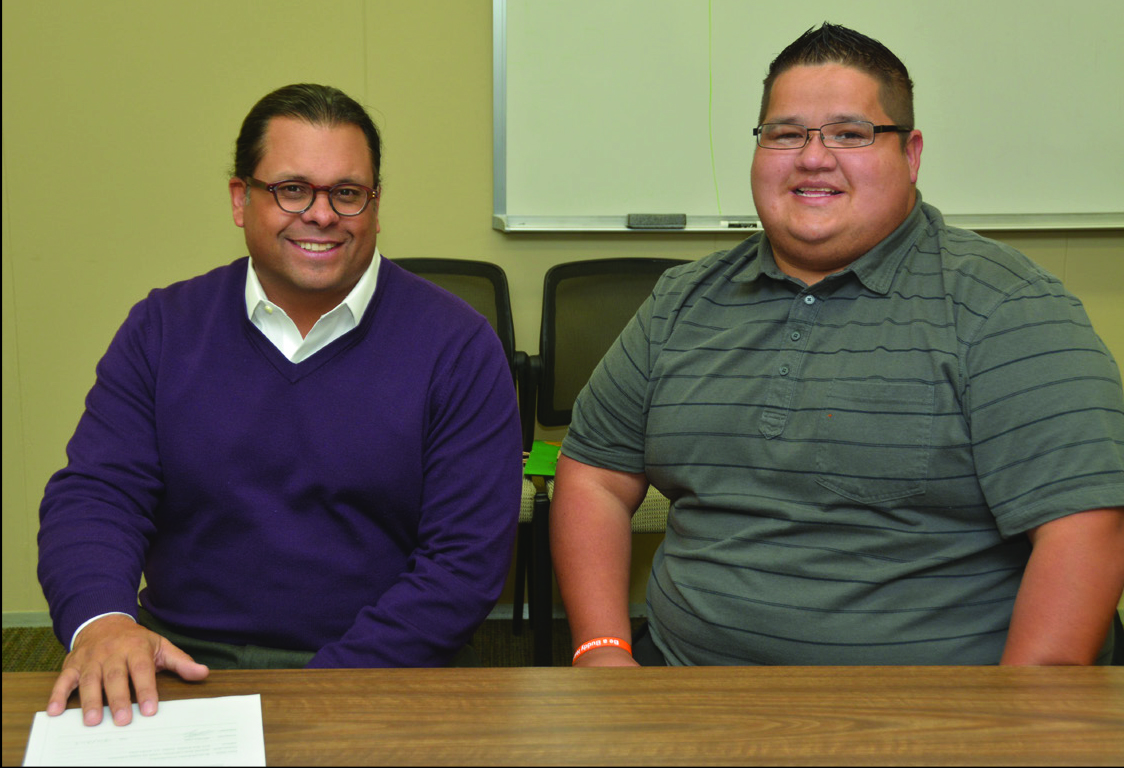Language, Linguistics, and English Language Learners (ELL)
Articles
Addressing Disproportionality in the Identification of English Language Learners (ELLs) for Special Education Programs:
What Pre-Service Teachers Need to Know (2012)
~ Leah J. Lerma and Martha Lue Stewart
Enhancing Self-Determination of Culturally Diverse Students with Disabilities: Current Status and Future Directions (2006)
~ Dalun Zhang and Michael R. Benz
Using Culturally and Linguistically Appropriate Assessments To Ensure that American Indian and Alaska Native Students
Receive the Special Education Programs and Services They Need (2002)
~ John W. Tippeconnic, III and Susan c. Faircloth
Research, Papers, and Literature Reviews
Culturally Responsive Instruction for English Language Learners With Learning Disabilities (2014)
~ Michael John Orosco, PhD and Rollanda O'Connor, PhD
A Decade of Disproportionality: A State-Level Analysis of African American Students Enrolled in the Primary Disability Category of Speech or Language Impairment (2019)
~ Gregory C. Robinson and Pamela C. Norton
The Effect of Community Linguistic Isolation on Language-Minority Student Achievement in High School (2014)
~ Timothy Arthur Drake
An Examination of Western Influences on Indigenous Language Teaching (2000)
~ Dean J. Mellow
Guidelines for Strengthening Indigenous Languages (2001)
~ University of Alaska | Alaska Native Knowledge Network
High-Quality Early Education: Age of Entry and Time In Care Differences in Student Outcomes for English-Only and Dual Language Learners (2015)
~ Noreen Yazejian, Donna Bryant, Karen Freel, Margaret Burchinal, the EducareLearning Network (ELN) Investigative Team
Holding a Mirror to "Eyes Wide Shut": The Role of Native Cultures and Languages in the Education of American Indian Students (2000)
~ Tarajean Yazzie | Office of Educational Research and Improvement
Identifying and Supporting English Learner Students with Learning Disabilities: Key Issues in the Literature and State Practice (2015)
~ National Center for Education Evaluation and Regional Assistance, Institute of Education Sciences, U.S. Department of Education
Dr. Janine Pease-Pretty On Top
Native American Language Immersion: Innovative Native Education for Children & Families (2001)
~ Janine Pease-Pretty on Top | American Indian College Fund
The Role of Native Languages and Cultures in American Indian, Alaska Native, and Native Hawaiian Student Achievement (2011)
~ Teresa L. McCarty, Ph.D. | Arizona State University
The Role of Tribal Languages and Cultures in American Indian Education (2008)
~ Sasanehsaeh “Suzi” Pyawasay (Menominee) | UW-Madison
Schooling for Self-Determination: Research on the Effects of Including Native Language and Culture in the Schools (2002)
~ Jerry Lipka
State of the Field: The Role of Native Languages and Cultures in American Indian, Alaska Native, and Native Hawaiian Student Achievement (2011)
~ Teresa L. McCarty, Ph.D.
Using Early Care and Education Quality Measures with Dual Language Learners: A Review of the Research (2014)
~ Elln Peisner-Feinberga,Virginia Buyssea, Allison Fulignib, Margaret Burchinala, Linda Espinosac, Tamara Halled, Dina C. Castroe
WIDA interview with Bryan Brayboy and David O’Connor
Booklets, Bulletins, Journals, and Magazines
American Indian English Language Learners (2014)
~ WIDA Consortium | Wisconsin Center for Education Research, UW-Madison
Reports and Publications
English Language Learners and Special Education: A Resource Handbook (2011)
~ Connecticut Administrators of Programs for English Language Learners (CAPELL)
English Learner Tool Kit for State and Local Education Agencies (SEAs and LEAs) (2016)
~ U.S. Department of Education
In Collision with the Iceberg Called Culture (2003)
~ M.S. van Bakel
Including English Language Learners with Disabilities in Large-Scale Assessments: A Case Study of Linguistically-Diverse Populations (2006)
~ Jane E. Minnema, Martha L. Thurlow, Gretchen R. VanGetson, Rene Jimenez | National Center on Educational Outcomes
Teaching Resources
Dual Language Learners with Disabilities: Supporting Young Children in the Classroom
~ The IRIS Center
The ELL Companion to Reducing Bias in Special Education Evaluation (2005)
~ Minnesota Department of Education
English Learner Disability Resources
~ Minnesota Department of Education
English Learner Tool Kit for State and Local Education Agencies (SEAs and LEAs) (2016)
~ U.S. Department of Education
Guidance Handbook for Educators of English Learners with Suspected Disabilities (2017)
~ Michigan Department of Education
Handbook for Educators of Students who are English Language Learners with Suspected Disabilities (2015)
~ Virginia Department of Education
Serving English Language Learners with Disabilities: A Resource Manual for Illinois Educators (2002)
~ Illinois State Board of Education
Reference and Resource Links
Our Mother Tongues: Discover America's First Languages
Explore Native American language programs from Alaska to North Carolina working to save their heritage languages.
Organizations, Agencies, and Associations
Center for Research on Education, Diversity & Excellence (CREDE) promotes educators’ use of research-based strategies of effective practice for culturally and linguistically diverse students.
Colorin' Colorado
A bilingual site for families and educators of English language learners
The Mid-Atlantic Equity Consortium (MAEC) was founded in 1991, as an education non-profit dedicated to increasing access to a high quality education for culturally, linguistically, and economically diverse learners. In its role as the Center, MAEC has collaborated with the U.S. Department of Education, the Office for Civil Rights, the Department of Justice, state departments of education, districts, and schools to ensure that students are treated equitably and are given access to a rigorous curriculum regardless of race, gender, national origin (English Language Learners), sexual orientation, or religious beliefs. The Center work has led us to work on issues such as the identification and placement of English Learners in supportive and appropriate instructional environments; creating positive and safe schools; increasing participation of girls and students of color in STEM, and addressing disproportionality in discipline.
Center for Multilingual Multicultural Research
"Striving to Make Language and Culture Part of the Solution" ~ Includes an extensive index of professional organizations for multicultural educators with links created by the University of Southern California's Center for Multilingual Multicultural Research.
Recommended Reading
Cultural Diversity, Families, and the Special Education System: Communication and Empowerment (1992)
~ Beth Harry
This work explores the quadruple disadvantage faced by the parents of poor, minority, handicapped children whose first language is not that of the school that they attend. The author's ethnographic study of 12 low-income Puerto Rican American families serves to illustrate how the present structure of the special education system disempowers parents, excluding them from the decision-making processes that categorise their children as "handicapped" - and ultimately, often place them at a permanent educational disadvantage.
Culturally and Linguistically Responsive Teaching and Learning: Classroom Practices for Student Success (2011)
~ Sharroky Hollie
Written to address all grade levels, this book provides teachers with strategies and suggestions to support their culturally and linguistically diverse students. With the influx of cultural diversity in schools, teachers can use the strategies in this resource to improve on the following five pedagogical areas: classroom management, use of text, academic vocabulary, and situational appropriateness.
The Skin that We Speak: Thoughts on Language and Culture in the Classroom (2008)
~ Edited by Lisa Delpit and Joanne Kilgour Dowdy
The Skin That We Speak takes the discussion of language in the classroom beyond the highly charged war of idioms and presents today’s teachers with a thoughtful exploration of the varieties of English that we speak, in what Black Issues Book Review calls “an essential text.” Edited by bestselling author Lisa Delpit and education professor Joanne Kilgour Dowdy, the book includes an extended new piece by Delpit herself, as well as groundbreaking work by Herbert Kohl, Gloria Ladson-Billings, and Victoria Purcell-Gates, as well as classic texts by Geneva Smitherman and Asa Hilliard. At a time when children are written off in our schools because they do not speak formal English, and when the class- and race-biased language used to describe those children determines their fate, The Skin That We Speak offers a cutting-edge look at crucial educational issues.
Strategies for Culturally and Linguistically Responsive Teaching and Learning (2015)
~ Sharroky Hollie
Provides teachers with concrete strategies to support instruction for students with culturally and linguistically diverse backgrounds. Incorporate the tools and tips in this resource into daily instruction to educate students of diverse backgrounds. Educators will learn to examine all aspects of teaching practices in order to be successful in educating all students to the expectation of today's standards. Use this professional resource to build an understanding of the significance of teaching practices, the classroom environment, and assignments in regards to the increasingly diverse student populations.
Why Are So Many Minority Students in Special Education?: Understanding Race & Disability in Schools (2014)
~ Beth Harry and Janette Klingner
The second edition of this powerful book examines the disproportionate placement of Black and Hispanic students in special education. The authors present compelling, research-based stories representing the range of experiences faced by culturally and linguistically diverse students who fall in the liminal shadow of perceived disability. They examine the children's experiences, their families' interactions with school personnel, the teachers' and schools' estimation of the children and their families, and the school climate that influences decisions about referrals to special education. Based on the authors' 4 years of ethnographic research in a large, culturally diverse school district, the book concludes with recommendations for improving educational practice, teacher training, and policy renewal.















